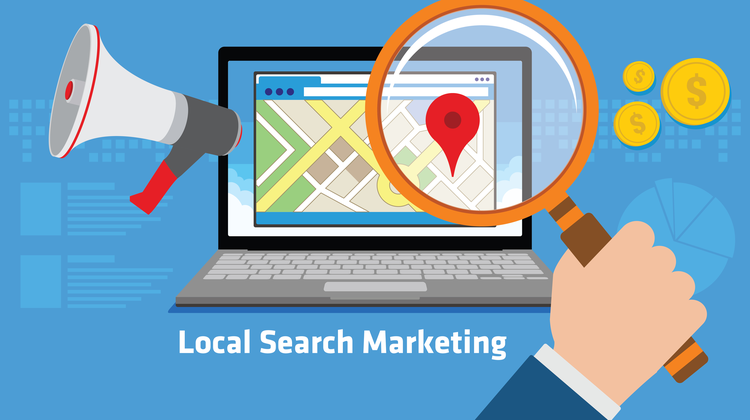Posted 2017-02-24
SEO: The Art of Ranking on Local Search

With “payday loan” search terms now removed from Google PPC, we consider how to rank organically.
It used to be that when you typed “payday loans” into Google, there’d be ads on the results page. What happened? I mean, even after Google updated its financial policy last year, you could bid on “payday loans,” so long as your products adhered to Google’s rules. Not anymore. Now you’ll only see organic results when you search “payday loans” or “cash advances.” (Curiously, though, you can still bid on “payday advances.”)
This means a lot of traffic is pouring into the organic results. According to Google’s Keyword Planner, the term “payday loans” gets 673,000 monthly searches. Since all those people don't see ads anymore, the organic results must be getting more clicks.
How much is that traffic worth? Well, you used to have to pay around $6 to get a first-page ad for “payday loans.” SpyFu.com shows that the high-ranking site local.checkintocash.com generates about 13,300 SEO clicks per month for “payday loan” and its derivatives. If you multiply $6 by the clicks, you’re looking at about $80,000 worth of monthly traffic.
So how can you steal a piece of the pie? Let’s look.
1. Proximity
Google also changed how it lists the organic results for “payday loans.” Local results get top honors. A recent Moz blog shows the number one ranking factor for local results is the location’s proximity to the searcher. These factors do NOT (seem to) have any bearing on local results:
- Claimed/verified Google listing
- Google reviews
- Website
- Linking domains
- Content quality
This will likely change in time, but right now you can have an unverified Google listing that doesn’t even link to a website, and you might show up first just because the location is closer to the searcher than anyone else.
The results are similar on both mobile and desktop. The only difference seems to be that with mobile Google can get a better idea of the searcher’s location.
None of this will surprise those following Google’s patent filings. Back in 2013, Google filed a patent for “determining the quality of locations based on travel time investment.” So, this has been part of the plan for several years.
If it’s possible for you to have local results on Google, you should take advantage of it. To start, make sure you’re signed up for a Google My Business account. While you don’t have to verify your address to get a listing, it will show up a lot faster if you verify it. Verification requires you to punch in a code that Google will send to the physical address of the property you’re trying to validate.
Get all your locations verified – not just one central office. You’ll want to show up in as many areas as possible. Remember, proximity counts.
2. Third Party Sites
Yelp and Yellow Pages regularly show up on the first page for “payday loans” searches. When you click through to either site, you see local listings in your area. We’re guessing that both sites are receiving more traffic because of how search has changed. Take advantage of their good fortune. Make sure your site is on theirs.
Here are some other sites that offer local listings that you should probably be in: Bing Places for Business, Yahoo Local Listing, MerchantCircle, White Pages, Superpages.com, YellowBot, Manta, Citysearch, MapQuest, Local.com, Foursquare, DexKnows, The Business Journals, Angie’s List, and Hotfrog.
If you have physical locations already, then setting them up on third-party sites is an easy decision. The cost of going after this market when you’re a web-based company requires a little more consideration, particularly about how much time and effort you can reasonably devote to the project (regarding creating the locations and maintaining them).
3. Hyperlocal Keywords
As we said earlier, your location’s proximity to the customer holds the most weight in local search results. But for customers who search beyond the base keyword, there’ll always be at least one first page result that got there using long tail keywords.
To reach a high-intent local audience, you’ll need to use hyperlocal keywords. Figuring out which ones is tough if there’s not volume data for your area. If your keyword tools are coming up empty on phrases to use for your specific area, you might find success using the keywords that work for similar yet larger locations with more volume data.
Another tactic is to view the SERPs for the main keyword and area you’re going after. You’ll find ideas for hyperlocal keywords that you may not have considered. For instance, say you’re trying to generate payday loan leads from Murphys, California. The search data volume for the 2,000-population town is minuscule if you use a research tool like Moz’s Keyword Explorer, Übersuggest, or KeywordTool.io.
But look at what happens when you type in “Murphys California payday loans” into Google. The search result pages are a treasure trove of ideas for long tail keywords, such as “Help with Payday Loan Debt in …” and “What you need to get a payday loan in …”
Final Thoughts
You’re not going to make a fortune going after local payday loan traffic in one area. But if you set it up right, you could get a steady trickle of leads, and when you add up enough trickles, well that’s what lakes are made of.
We hope you can use these tips to start ranking better in local search. If you have any questions, please drop us a line. We’d love to help you improve your traffic.